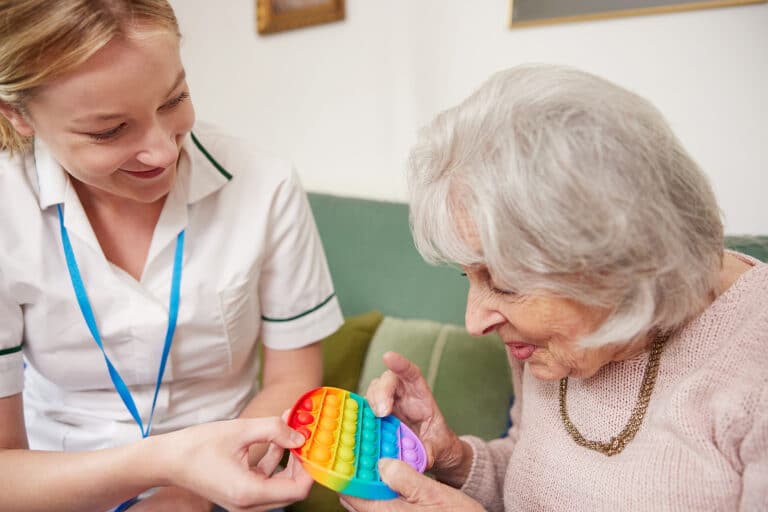When families are looking for support to assist seniors who have Alzheimer’s disease or dementia, one option is memory care programs. These programs offer support in a variety of different ways, making it easier for family caregivers to ensure their seniors’ needs are being met. Here are some pieces of the program that family caregivers might want to prioritize.
Mentally Stimulating Activities
One of the important parts of memory care programs involves the activities the patients engage in while there. Mentally stimulating activities help aging adults who are having memory trouble keep their brains active and engaged. Some of those activities might involve games, puzzles, or even activities that allow them to reminisce. Most importantly, the seniors in the program know what to expect every day because they’re able to count on the routine the medical adult day care center offers for them.
A Combination of Safety and Support
Seniors who are experiencing trouble with memory and brain function need a combination of support and safety on a regular basis. It’s essential that the adult day center has enough staff available to help the number of patients participating. The location should also have safety features that keep patients from wandering away or encountering anything that might be dangerous or harmful.
Opportunities for Social Interactions
Aging adults all need socialization, no matter what health issues they’re battling. For seniors who are dealing with cognitive changes, being around other people on a regular basis is even more essential. Spending a few hours a day around other people can do so much to help improve overall quality of life for seniors experiencing memory issues. Seniors in a memory care program establish friendships with other participants and with caregivers that they meet with regularly.
Personalized Care Plans
Every person who needs memory care services is an individual, with very unique needs. The best memory care programs offer families personalized care plans for their seniors that work toward meeting those individual needs. When seniors experience changes in their health and in how their brains are functioning, their care plans have to adjust in order to keep meeting those needs.
Medical Care and Support
Seniors who have memory illnesses are extremely likely to have other health issues, too. They may not be able to manage those health issues very well on their own, so it’s important that memory care staff are there to help them. For instance, seniors might need help with checking glucose levels or blood pressure, eating when they should, or remembering to take medications when they need to. Family caregivers experience peace of mind knowing that memory care staff can help with all of this and more.
Choosing a memory care program for seniors who have cognitive illnesses is a big decision for families. Family caregivers need to know that the programs they’re seeking have services that will keep aging adults safe and offer them the tools they need in order to have the best possible quality of life. Learning as much as possible about the support available helps families make the right decisions for their seniors.
If you or an aging loved one are considering the assistance of an medical adult day care in Pikesville, MD please contact the caring staff at Renaissance Adult Medical Center. Call (443) 501-9500
Renaissance Adult Medical Center Provides Senior Socialization in a Medical Adult Day Care Center in Baltimore City, Baltimore County (Pikesville, Towson, Owings Mills, Catonsville, Reisterstown, Dundalk, Essex), Howard County (Columbia, Ellicott City, Elkridge, Laurel), and in many other counties and cities of Maryland.
- Seniors, Skin Cancer, and Medical Adult Day Care - April 22, 2025
- Getting Help with Diabetes from Nursing Care at Adult Day Health Care - April 10, 2025
- What Should Seniors Do to Focus on a Balanced Diet? - March 24, 2025

